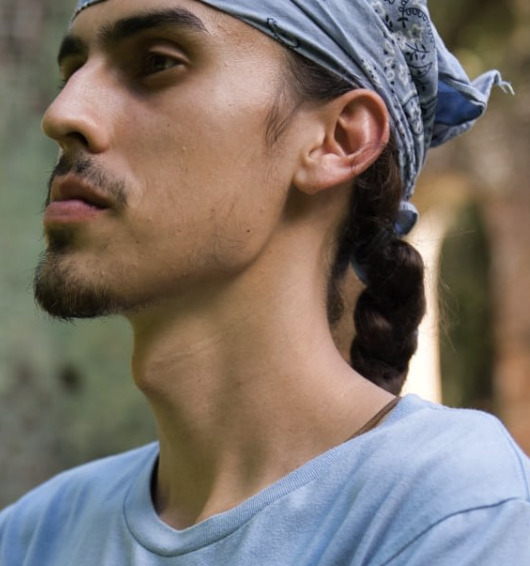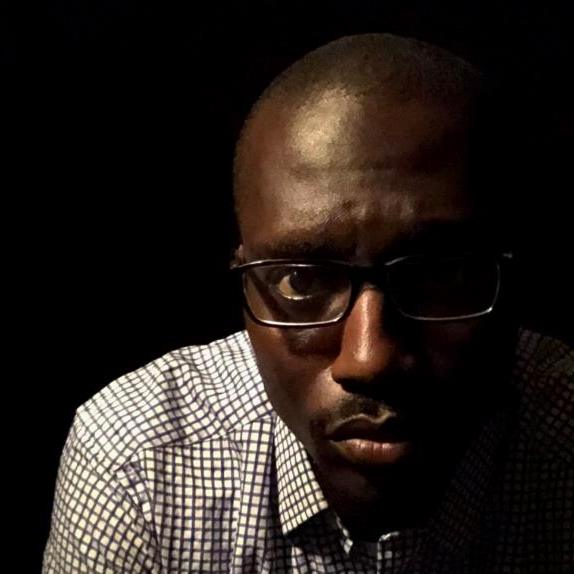Decolonizing Christianity
by Nicholas Eše Hemeo’o Arroyave-Howling Crane and Christopher C. Thompson | 13 April 2023 |
There was a saying that was common years ago: “White is right. Black, get back. If you’re brown, hang around.”
It’s offensive but it speaks to several frameworks related to the world established and curated by white supremacist mores and values. The saying suggests that there is wholesale acceptance of ideas, systems, and institutions established by white power structures. On the other hand, anything associated with blackness is second-class, subservient and inferior to its white counterparts.
This version of ethnocentrism, blanketed or not, is a direct result of Empire and Western colonialism. During the Enlightenment, the concept of “race” was developed to elevate the men of European descent in particular as being the most advanced of all ethnic groups due to superior brain size, intellectual attainments, and cultural advancements.
White is right?
The sad reality is we commonly see the “white is right” framework in Christian spaces as well. Who gets to dictate what is Christian? For far too long the west has dictated what is and what is not acceptable “worship before God.”
But who put the west in charge of the Church? Did not the church originate in Jesus, and was not Jesus from the Middle East? It is noteworthy that the term “Middle East” is also derived from a construct that centers the west. Consider then, that the good news spread to Europe and even took a contextual approach to meet the needs of the people there.
So where did the idea come in that somehow westerners are now the chosen people? What makes westerners “chosen” above any other nation, especially the Hebrews, with whom the faith originated? Westerners are the “gentiles” or “the other nations outside of Judaism,” just as the rest of us are. They were grafted in, too. Ideally, each diverse community, with God as the Leader, and with our unique ethnic nuances, should decide how to express our trust in Jesus, the Holy Spirit, and the Father, not the west or any westerner.
Decolonization is not only for black and brown folks. It’s for our light brown and light-skinned European-descent brothers and sisters also who have undergone colonialism for 1500+ years. We can all heal together. As John Trudell, a well-known Dakota activist and speaker, so eloquently stated, “We all come from tribes.”
There is a question that natives ask each other when we greet one another: Who are your people? Who is your family? Who are your relatives? In an age of cultural appropriation, when so many of our European relatives are attracted to First Nations ceremonies of Abya Yala or African drums or Asian healing modalities, there is a deeper reason: our tribal ancestry (no matter where we originated), our genes, and even our Creator beckon us to return to a more integrated spirituality; one that is more connected to the natural world around us which we are a part of.
There were plenty of sacred spaces within the Hebrew tradition where the people met with YHWH, whether on a mountain, on a hill, etc. In order to decolonize, we must decentralize the western concept of a steeple and a cross as being the only thing of importance.
“Where two or three are gathered, there I am also.” Wherever we meet with the Creator becomes a sacred space. This is a key aspect to decolonizing our faith.
Cultural identity
Think of St. Patrick of the Britons, who was captured by the Celts and became one of them, and catered his service to the people as one of them, intertwining his message of the Good News as shown in Jesus to the host people’s worldviews, cultural music and traditions, cultural instruments. He began to identify with the Celts so much that he called himself a Celt. There was no air of cultural superiority to his method—that tradition belonged to Rome.
We must not miss the significance of Adventists’ demanding that other tribal nations’ cultural identity must “end at the door” when they become a follower of Jesus because “their ways” are “of the devil,” “pagan,” “savage,” or “worshiping evil spirits.” This in turn has the effect of saying that the host (often western and Anglo-Saxon cultural styles) is somehow God-ordained and holy. When these trajectories are followed, we are following in the course of Rome.
Revelation tells of John’s vision of the heavenly realm where he saw
a great crowd that no one was able to number, from every nation and tribe and people and language, standing before the throne and before the Lamb, dressed in white robes and with palm branches in their hands (Rev 7:9).
If they are of various nations, tribes, peoples, and languages (which we all are), and if every nation is included in God’s plan of salvation, who are we to say their God-given expressions of language, nationhood, tribal identity, and cultural make-up are wrong?
We, as the Revelator does, affirm the beauty of our diversity and learn to come from a position of humility and learning. I long for a day where we can all worship God together “in spirit and in truth” and with our diversity intact while loving one another as brothers and sisters, realizing we are all kin.This is what I long for. How about you?
Strategies
Toward that reality, here are some strategies for developing and maintaining a decolonized Christian community:
- Allow the narrative of scripture to speak for itself. Refrain from limiting the meaning of the text or superimposing meaning onto the text that has nothing to do with its original context or intent.
- Allow the biblical narrative to inform the local context. There is nothing new under the sun. The truth of God’s word and the principles it contains are priceless. God’s word always leads us closer to the divine will, both individually and collectively.
- Allow for the authentic expression of cultural elements in religious spaces. This cannot be overstated. Diverse groups must be affirmed in their unique iterations of sacred times for worship and celebration.
- Commit to aligning with the needs and efforts of vulnerable and oppressed people groups. Recognize and acknowledge oppression wherever it manifests, and commit to marshaled energies and effort against it.
- Call out elements of white supremacy wherever they are found. Be willing to acknowledge when and where racism and eurocentrism are made manifest in church spaces.
- Respect and learn from indigenous expressions of faith around the world towards Jesus as Creator/Great One. We all gain and learn from each other. Our diverse environments provide tremendous opportunities for this type of rich experience regularly. Why should it be any different in church?
- Acknowledge that God is the one who is infallible. Almost everything else that we do to express the faith is up for revision. In other words, we are on an endless journey of learning and discovery, and will be even after the Lord returns.
Paul said, “not as though I had already attained…” If only we could apply this same framework to our cultural understandings and practice of the faith. Let’s let God guide and direct us to more affirming and inclusive expressions and celebrations of the faith of our forebears. Let’s make ourselves comfortable with the discomfort of making space for others, and in doing so create more space for the Almighty God.
 Nicholas Arroyave-Howling Crane (Eše’Hemeo’o, or “Sun Road”) is indigenous to the Maya, Northern/Southern European Nations, and a hint of West African ancestry. He is a member of the Tsitsistas (Cheyenne) Elk Scraper Warrior Society, and he currently resides with his family on Escamacu and Yemassee ancestral lands (present-day Beaufort, South Carolina) and longs for the day when all nations will sit together at the wedding meal of the Lamb.
Nicholas Arroyave-Howling Crane (Eše’Hemeo’o, or “Sun Road”) is indigenous to the Maya, Northern/Southern European Nations, and a hint of West African ancestry. He is a member of the Tsitsistas (Cheyenne) Elk Scraper Warrior Society, and he currently resides with his family on Escamacu and Yemassee ancestral lands (present-day Beaufort, South Carolina) and longs for the day when all nations will sit together at the wedding meal of the Lamb.
 Christopher C. Thompson writes about culture and communication at thinkinwrite.com. He’s the author of Choose to Dream. When not writing, he’s jogging or binge-watching Designated Survivor. He’s married to Tracy, who teaches at Oakwood University.
Christopher C. Thompson writes about culture and communication at thinkinwrite.com. He’s the author of Choose to Dream. When not writing, he’s jogging or binge-watching Designated Survivor. He’s married to Tracy, who teaches at Oakwood University.




